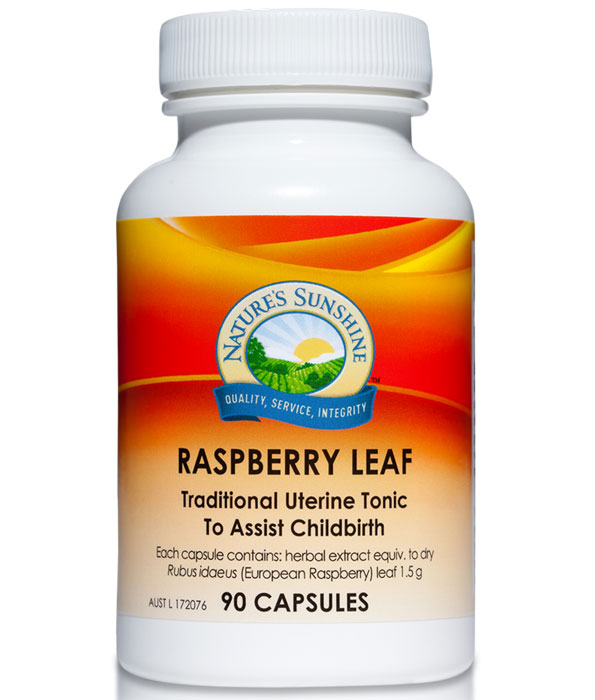Raspberry Leaf In Pregnancy: Benefits, Safety, And Everything You Need To Know
Pregnancy is a transformative journey, and many women seek natural remedies to support their health and well-being. Raspberry leaf, often referred to as red raspberry leaf, has been used for centuries in traditional medicine to aid pregnancy and childbirth. But what exactly does the research say about its benefits and safety? This comprehensive guide delves into everything you need to know about raspberry leaf during pregnancy.
Raspberry leaf (Rubus idaeus) is a popular herbal remedy among pregnant women. It is believed to strengthen the uterine muscles, reduce labor pain, and promote a smoother delivery. However, it's important to understand the science behind this natural supplement and consult with your healthcare provider before incorporating it into your pregnancy routine.
In this article, we will explore the benefits, risks, dosage recommendations, and expert insights related to raspberry leaf in pregnancy. By the end, you'll have a clear understanding of whether this herbal remedy is right for you and your pregnancy journey.
Read also:Is Rocco Dispirito Married A Comprehensive Look Into His Personal Life
Table of Contents
- Introduction to Raspberry Leaf
- Benefits of Raspberry Leaf in Pregnancy
- Is Raspberry Leaf Safe During Pregnancy?
- Recommended Dosage of Raspberry Leaf
- Potential Side Effects
- When to Start Taking Raspberry Leaf
- Forms of Raspberry Leaf
- The Science Behind Raspberry Leaf
- Expert Advice and Recommendations
- Conclusion: Is Raspberry Leaf Right for You?
Introduction to Raspberry Leaf
What is Raspberry Leaf?
Raspberry leaf is derived from the leaves of the red raspberry plant (Rubus idaeus). It has been used for centuries in traditional medicine for its potential health benefits, particularly during pregnancy. The leaves contain a variety of compounds, including tannins, flavonoids, and fragarine, which are believed to have a positive impact on the reproductive system.
Historically, raspberry leaf tea was consumed by women to prepare their bodies for childbirth. Today, it remains a popular herbal remedy for pregnant women seeking natural support for their pregnancy.
Benefits of Raspberry Leaf in Pregnancy
Supporting Uterine Health
One of the primary benefits of raspberry leaf in pregnancy is its ability to strengthen the uterine muscles. The compound fragarine is thought to tone and relax the uterine muscles, which may lead to shorter and less painful labor.
- Strengthens uterine muscles
- May reduce labor pain
- Promotes a smoother delivery
Nutrient-Rich Properties
Raspberry leaf is packed with essential nutrients, including calcium, iron, magnesium, and vitamins B and C. These nutrients support overall health during pregnancy and contribute to fetal development.
Research suggests that consuming raspberry leaf during pregnancy can improve maternal health and reduce the risk of complications during childbirth.
Is Raspberry Leaf Safe During Pregnancy?
Understanding the Risks
While raspberry leaf is generally considered safe for most pregnant women, it is important to consult with your healthcare provider before use. Some studies suggest that raspberry leaf may stimulate uterine contractions, which could pose risks in certain cases, such as preterm labor.
Read also:The Remarkable Journey Of Thad Luckinbill An Insightful Look Into His Life And Career
Women with a history of preterm labor, placenta previa, or other high-risk pregnancy conditions should exercise caution and seek medical advice before consuming raspberry leaf.
Recommended Dosage of Raspberry Leaf
How Much Should You Take?
The recommended dosage of raspberry leaf varies depending on the form consumed. Here are some general guidelines:
- Tea: Drink 2-3 cups of raspberry leaf tea per day, starting in the second trimester.
- Capsules: Take 1-2 capsules (1 gram each) per day, as directed by your healthcare provider.
- Tincture: Use 2-3 dropperfuls of raspberry leaf tincture per day, diluted in water.
It is crucial to follow the dosage recommendations provided by your healthcare provider to ensure safety and efficacy.
Potential Side Effects
What to Watch Out For
Although raspberry leaf is generally well-tolerated, some women may experience side effects. Common side effects include:
- Gastrointestinal discomfort
- Nausea
- Increased uterine contractions
If you experience any adverse effects, discontinue use and consult your healthcare provider immediately.
When to Start Taking Raspberry Leaf
Timing Matters
Most experts recommend starting raspberry leaf supplementation in the second trimester of pregnancy. This allows your body to adjust to the herb while minimizing the risk of stimulating premature contractions.
Some women choose to begin in the third trimester, closer to their due date, to prepare their bodies for labor. However, it is essential to discuss the timing with your healthcare provider to ensure it aligns with your individual pregnancy needs.
Forms of Raspberry Leaf
Choosing the Right Form
Raspberry leaf is available in several forms, including tea, capsules, and tinctures. Each form offers unique benefits and considerations:
- Tea: A popular choice for its soothing properties and ease of preparation.
- Capsules: Convenient and easy to incorporate into your daily routine.
- Tincture: A concentrated form that allows for precise dosing.
Select the form that best suits your lifestyle and preferences, but always consult with your healthcare provider before starting any new supplement.
The Science Behind Raspberry Leaf
What Does the Research Say?
Several studies have explored the effects of raspberry leaf on pregnancy and childbirth. A 2001 study published in the Journal of Midwifery & Women's Health found that women who consumed raspberry leaf tea experienced shorter second stages of labor compared to those who did not.
Another study conducted in Australia reported that raspberry leaf supplementation reduced the likelihood of preterm labor and the need for artificial induction. While these findings are promising, more research is needed to fully understand the mechanisms and long-term effects of raspberry leaf in pregnancy.
Expert Advice and Recommendations
Consulting Your Healthcare Provider
Before incorporating raspberry leaf into your pregnancy routine, it is crucial to consult with your healthcare provider. They can assess your individual health needs and provide personalized recommendations based on your medical history and pregnancy progress.
Experts emphasize the importance of using high-quality, reputable products and adhering to recommended dosages. Always choose products that are certified organic and free from contaminants to ensure safety and efficacy.
Conclusion: Is Raspberry Leaf Right for You?
Raspberry leaf has been a trusted herbal remedy for generations, offering potential benefits for uterine health, labor preparation, and overall well-being during pregnancy. However, it is essential to approach its use with caution and seek guidance from your healthcare provider.
By understanding the benefits, risks, and recommended dosages of raspberry leaf, you can make an informed decision about incorporating it into your pregnancy journey. Remember to prioritize your health and the health of your baby above all else.
We invite you to share your thoughts and experiences in the comments below. If you found this article helpful, please consider sharing it with others who may benefit from the information. For more expert advice and resources on pregnancy and natural health, explore our other articles and stay connected with our community.
Article Recommendations


